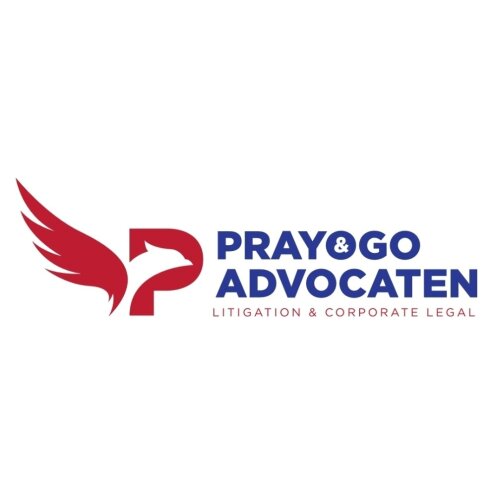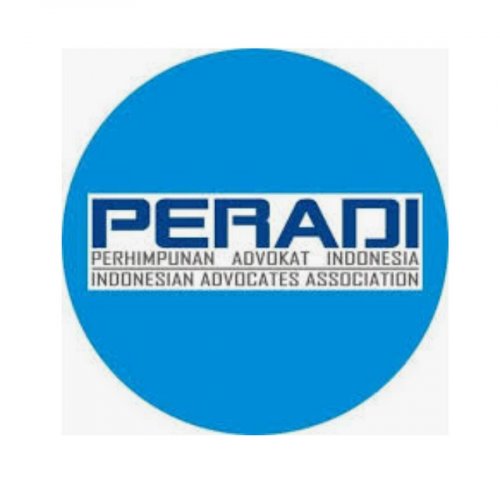Best Equity Capital Markets Lawyers in Indonesia
Share your needs with us, get contacted by law firms.
Free. Takes 2 min.
Or refine your search by selecting a city:
List of the best lawyers in Indonesia
About Equity Capital Markets Law in Indonesia
Equity Capital Markets (ECM) in Indonesia refer to the segment of financial markets where companies raise funds by issuing shares or other equity instruments to investors. These markets are essential for both the growth of businesses and the development of the Indonesian economy. The Indonesia Stock Exchange (IDX) is the primary marketplace for public offerings, listings, and trading of equity securities. Regulatory oversight is provided by the Otoritas Jasa Keuangan (OJK), or the Financial Services Authority, which governs how public and private equity offerings are conducted, ensuring transparency and protecting investor interests.
Why You May Need a Lawyer
Legal support is particularly important in Equity Capital Markets because the field is governed by complex regulations, strict compliance requirements, and significant financial stakes. Here are common situations where legal assistance may be necessary:
- Preparing for an initial public offering (IPO) or secondary public offering (SPO)
- Drafting and reviewing offering documents
- Ensuring compliance with OJK and IDX regulations
- Structuring corporate reorganizations or share buybacks
- Negotiating with investors, underwriters, and regulatory authorities
- Advising on mergers and acquisitions that involve share deals
- Resolving disputes involving shareholders or regulatory breaches
Engaging a lawyer helps organizations minimize risks, avoid costly mistakes, and efficiently navigate the evolving legal framework in Indonesian capital markets.
Local Laws Overview
Participants in the Indonesian Equity Capital Markets must comply with several key local laws and regulations:
- Capital Market Law (Law No. 8/1995): This primary legislation outlines the overall framework for securities activities, disclosures, registration, and anti-fraud provisions.
- OJK Regulations: The OJK issues detailed rules on IPO candidates, prospectus requirements, disclosure of material information, insider trading, and public company obligations.
- Listing Rules: The IDX sets out requirements for listing, maintenance of listing, and ongoing reporting obligations for public companies.
- Foreign Investment Rules: Rules restrict foreign ownership in certain industries and require transparency regarding beneficial owners.
- Anti Money Laundering (AML) Laws: Stringent AML and Know Your Customer (KYC) obligations are enforced for ECM transactions.
Breaches of these laws may result in penalties, fines, or suspension of trading, making legal guidance crucial throughout the ECM process.
Frequently Asked Questions
What is an Initial Public Offering (IPO) in Indonesia?
An IPO is the process where a private company offers its shares to the public for the first time via the Indonesia Stock Exchange. It is regulated by OJK and IDX to ensure transparency and investor protection.
Who regulates the Equity Capital Markets in Indonesia?
The principal regulator is the Financial Services Authority (OJK). The Indonesia Stock Exchange (IDX) also plays a key role in regulating listings and trading activities.
What are the main steps in going public?
The process typically includes internal company restructuring, preparing audited financial statements, appointing advisors, preparing a prospectus, obtaining OJK and IDX approval, and conducting roadshows.
Can foreign investors participate in Indonesian equity markets?
Yes, but foreign ownership is restricted in certain sectors. Foreign investors must comply with OJK and IDX requirements and may face different investment rules based on the industry.
What are the disclosure requirements for public companies?
Public companies must provide regular financial reporting, disclose material facts, notify about significant changes in management, and follow IDX disclosure obligations.
What legal documents are needed for an IPO?
These include a prospectus, underwriter agreements, legal due diligence reports, corporate approvals, and OJK filings.
How are share buybacks regulated?
Share buybacks require approval from the company’s general meeting of shareholders and must comply with OJK and IDX rules regarding procedures and reporting.
What are the penalties for violating capital markets laws?
Violations can result in administrative sanctions, financial penalties, civil lawsuits, criminal liability, or suspension of trading activities.
How long does the IPO process take?
The IPO process in Indonesia generally takes between 6 and 12 months, depending on company readiness, compliance with regulations, and market conditions.
What is due diligence in the context of ECM?
Due diligence involves a thorough review of a company’s legal, financial, and operational status to identify risks and ensure all disclosure and regulatory obligations are met before an offering.
Additional Resources
If you wish to know more or need help with legal aspects of Equity Capital Markets in Indonesia, the following resources may be useful:
- Financial Services Authority (OJK): Main regulatory body for capital markets
- Indonesia Stock Exchange (IDX): Provides listing rules, corporate actions, and market data
- Indonesian Central Securities Depository (KSEI): Handles post-trade processing and settlement
- Indonesian Corporate Law Firms: Many have teams specializing in ECM transactions
- Indonesian Capital Market Association: Offers education and industry updates
Next Steps
If you require legal assistance in Equity Capital Markets, consider the following steps:
- Clearly identify your objectives, whether it is an IPO, secondary offering, or other ECM activity
- Gather all relevant documents such as financial statements, business plans, and corporate approvals
- Search for law firms or lawyers with proven experience in Indonesian ECM transactions
- Schedule a consultation to discuss your specific needs and understand the legal procedures involved
- Ensure your chosen lawyer conducts thorough due diligence and helps you maintain compliance throughout the process
Getting professional legal guidance early can save significant time and costs, help you avoid regulatory pitfalls, and set your ECM transaction on the right path to success.
Lawzana helps you find the best lawyers and law firms in Indonesia through a curated and pre-screened list of qualified legal professionals. Our platform offers rankings and detailed profiles of attorneys and law firms, allowing you to compare based on practice areas, including Equity Capital Markets, experience, and client feedback.
Each profile includes a description of the firm's areas of practice, client reviews, team members and partners, year of establishment, spoken languages, office locations, contact information, social media presence, and any published articles or resources. Most firms on our platform speak English and are experienced in both local and international legal matters.
Get a quote from top-rated law firms in Indonesia — quickly, securely, and without unnecessary hassle.
Disclaimer:
The information provided on this page is for general informational purposes only and does not constitute legal advice. While we strive to ensure the accuracy and relevance of the content, legal information may change over time, and interpretations of the law can vary. You should always consult with a qualified legal professional for advice specific to your situation.
We disclaim all liability for actions taken or not taken based on the content of this page. If you believe any information is incorrect or outdated, please contact us, and we will review and update it where appropriate.
Browse equity capital markets law firms by city in Indonesia
Refine your search by selecting a city.
















